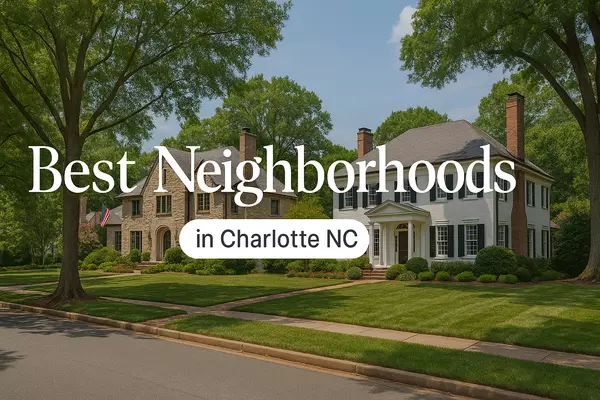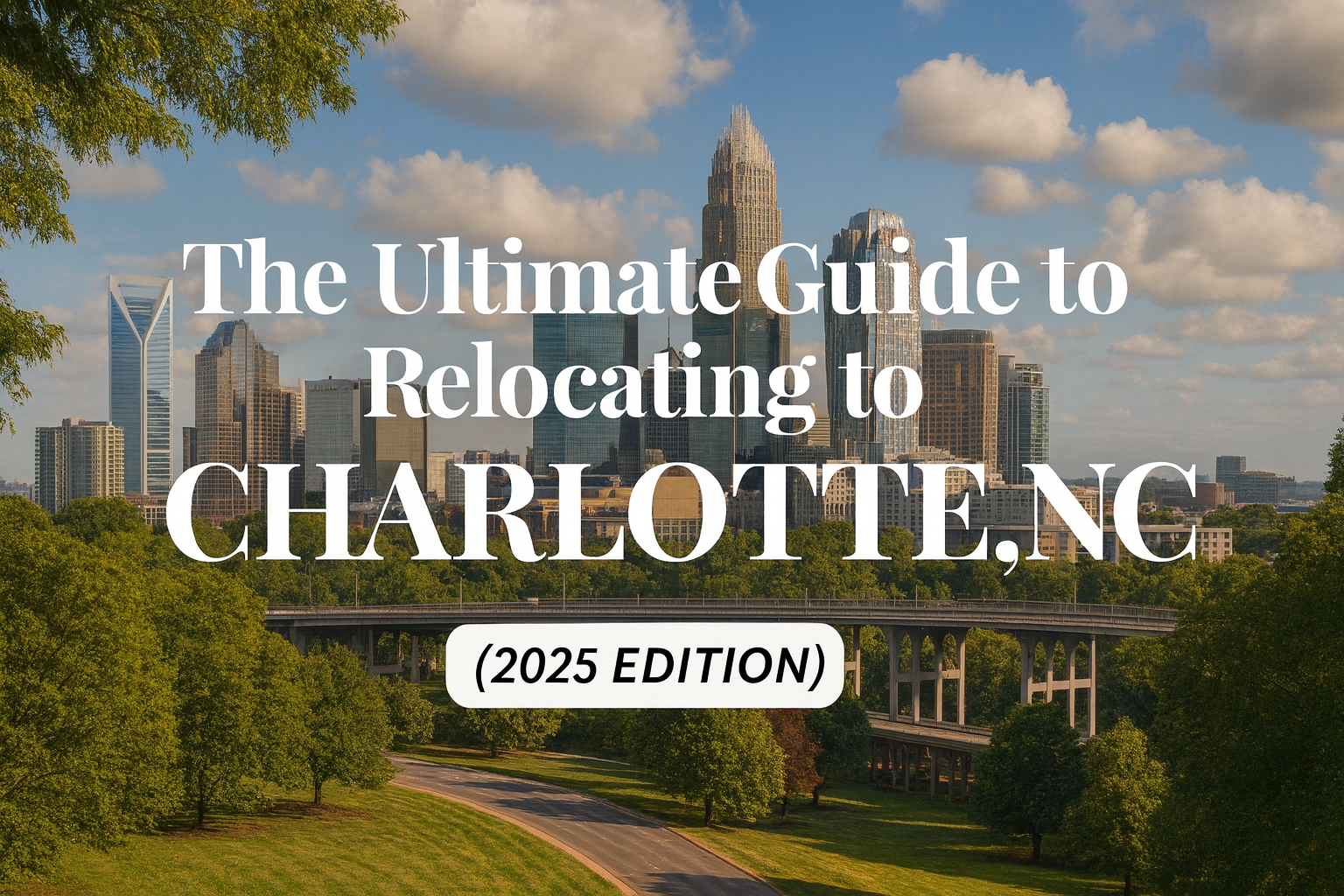Charlotte Airbnb Guide

Charlotte Airbnb Regulations & Investment Guide (2025)
Can You Own a Short-Term Rental in Charlotte, NC?
If you’re considering investing in a short-term rental (STR) or Airbnb property, Charlotte should be on your shortlist. With a booming economy, sports tourism, and steady business travel, the Queen City provides strong year-round demand. Before you buy, it’s critical to understand Charlotte Airbnb laws, short-term rental regulations, and investment potential for 2025.
Why Charlotte is a Strong Market for Short-Term Rentals
1. Sports and Major Events Drive Year-Round Visitors
- Carolina Panthers (NFL)
- Charlotte Hornets (NBA)
- Charlotte FC (MLS)
- NASCAR at Charlotte Motor Speedway
- ACC Basketball Tournament
2. Arts, Museums, and Culture
The Mint Museum, Discovery Place, and Charlotte’s food and music scene attract cultural tourists in addition to sports fans. Many visitors also explore Charlotte’s best neighborhoods to experience the city like a local.
3. Business Travel and Finance Hub
Charlotte is home to major banks like Bank of America and Wells Fargo’s East Coast division, making it a consistent business-travel market. This mix of business and leisure travel strengthens the Charlotte cost of living and housing market, which impacts Airbnb demand.
4. Climate and Drive-Market Appeal
With a mild climate and proximity to Atlanta, Raleigh, Nashville, and Charleston, Charlotte is popular for weekend trips. For new arrivals considering STR investments, check out our full Charlotte relocation guide.
Charlotte Airbnb Laws and Regulations
Charlotte is considered Airbnb-friendly, but like any growing city, it has rules designed to keep things orderly. Here are the essential Charlotte short-term rental regulations:
- Registration: The Charlotte-Mecklenburg Police Department (CMPD) maintains a free rental property registry. It’s mandatory if your property hits certain “disorder risk” thresholds, but voluntary for others. Many hosts still register because it improves communication with the city.
- Business License: No special business license is required. Instead, register for NC state and county tax purposes.
- Occupancy & Safety Standards: Properties must comply with Charlotte’s zoning ordinance and housing standards. That means meeting minimum health, safety, and habitability requirements. Platforms set their own caps for occupancy limits.
- Taxes: North Carolina sales tax (7.25% in Mecklenburg) + Mecklenburg County occupancy tax (8%). Airbnb collects/remits these, but hosts must still report rental income.
- HOAs & Leases: Condo boards and HOAs often impose stricter rules than the city. Always verify before investing.
The Investment Potential in Charlotte
Charlotte’s STR market is strong, but it’s also smart to look at the numbers:
- Market Score: AirDNA rates Charlotte at 67 (“good”).
- Seasonality: 90 out of 100 — meaning demand is steady throughout the year.
- Average Daily Rate (ADR): Around $196, lower than some markets but supported by consistent occupancy from middle-class travelers.
- Revenue per Available Room (RevPAR): Strong given the city’s year-round visitors and event-driven demand.
Charlotte is a “drive-to” city for much of the Southeast, making it appealing for both weekend getaways and business trips. Combine that with population growth and a strong job market, and it’s easy to see why investors are bullish.
Financing a Short-Term Rental in Charlotte
Getting financing for an STR isn’t always straightforward. Traditional lenders may hesitate, but some other financing options include DSCR loans and STR-specialty lending products that use projections (AirDNA, comparable revenue data) for underwriting.
Short-Term Rental Management: Self vs. Professional
Once you own the property, you’ll need to decide whether to self-manage or hire a management company. There are pros and cons to both options, such as:
- Self-managing: More control, fewer fees, but time-intensive.
- Property managers: Local STR experts handle guest check-in, cleaning, and revenue optimization, usually charging 15–25% of bookings.
Final Thoughts: Should You Invest in a Charlotte Airbnb?
Charlotte offers a combination of lighter regulations, steady demand, and market growth. Sports, culture, business travel, and its drive-market appeal make it one of the Southeast’s strongest Airbnb markets. Future laws (such as NC Senate Bill 291) could impact regulations, so always confirm rules before investing.
If you’re ready to enter the Charlotte short-term rental market, explore more about Charlotte’s top neighborhoods and how the cost of living compares for both investors and residents.
Take a look at some of these homes that are eligible for short-term rentals!
Frequently Asked Questions About Airbnb in Charlotte, NC
Is Airbnb legal in Charlotte, NC?
Yes. Short-term rentals like Airbnb are legal in Charlotte, but hosts must comply with zoning rules, tax collection, and housing standards. HOA or condo bylaws may further restrict rentals.
Do I need a business license to run an Airbnb in Charlotte?
No special Airbnb license is required. North Carolina ended its statewide privilege license in 2015. However, Airbnb hosts must register for taxes at the state and county level and comply with local codes.
Does Airbnb collect taxes in Charlotte?
Yes. Airbnb automatically collects and remits North Carolina sales tax (7.25% in Charlotte) and Mecklenburg County occupancy tax (8%). Hosts are still responsible for reporting rental income on tax returns.
Are there occupancy limits for Airbnbs in Charlotte?
Charlotte follows the International Property Maintenance Code, which sets minimum square footage per guest. There is no fixed “2 guests per bedroom + 2” rule in city law, though Airbnb applies its own guidelines.
What about HOAs and condo boards?
Many HOAs and condo associations in Charlotte ban or heavily restrict short-term rentals. Always review HOA bylaws or lease agreements before purchasing or listing a property.
Categories
Recent Posts








